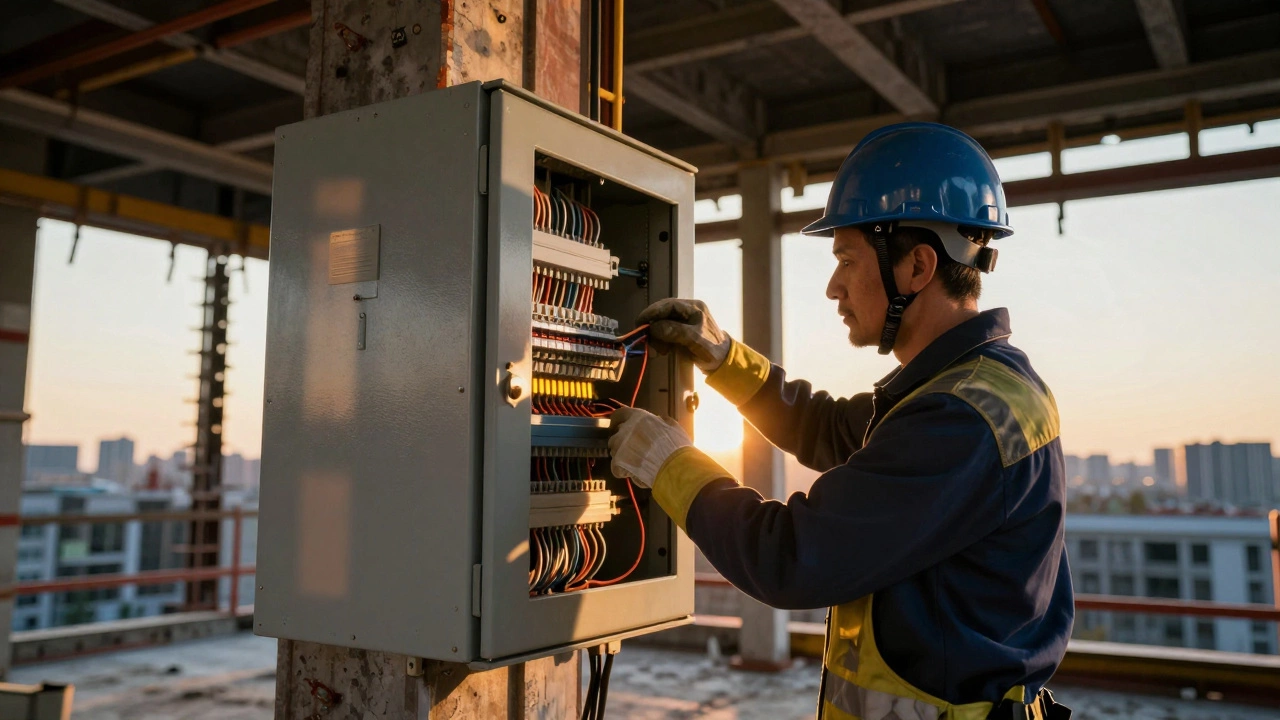Construction Trades: Real‑World Tips and Career Insights
If you’ve ever wondered what a "construction trade" actually is, you’re not alone. Most people think of bulldozers and blueprints, but the trades are the hands‑on work that turns a plan into a building. From electricians and plumbers to bricklayers and carpenters, each trade has a specific role that keeps a project moving. Understanding these jobs helps you decide if a trade is right for you, whether you’re looking for a new career or just want to know who’s doing what on a site.
What Are Construction Trades?
Construction trades are skilled jobs that require specific training, tools, and on‑the‑job experience. Unlike office‑based roles, trade workers spend most of their day on a site, using equipment and following safety rules. Common trades include:
- Plumbing – installing pipes, fixing leaks, and fitting fixtures.
- Electrical – wiring buildings, setting up panels, and ensuring circuits are safe.
- Carpentry – framing walls, building roofs, and fitting doors and windows.
- Masonry – laying bricks, blocks, and stone for walls and foundations.
- HVAC – fitting heating, ventilation, and air‑conditioning systems.
Each trade has its own set of qualifications, but they all share a focus on hands‑on problem solving and quality work. Employers value tradespeople because they keep projects on schedule and help avoid costly mistakes.
How to Get Started in a Trade
Getting into a construction trade is easier than you might think. Here’s a straightforward path you can follow:
- Research the trade you like – watch videos, read blogs, or talk to someone on a site. Knowing the day‑to‑day tasks helps you pick the right fit.
- Find an apprenticeship – most trades offer paid apprenticeships that combine classroom learning with on‑site practice. Look for programs through local colleges or trade unions.
- Get certified – after completing an apprenticeship, you’ll usually need a certification or license. It proves you meet safety and skill standards.
- Build a toolbox – start with the basics: a good set of hand tools, safety gear, and any trade‑specific equipment.
- Network on the job – good relationships lead to better gigs and higher pay. Show up on time, ask questions, and keep learning.
Many trades also offer short courses if you want to switch later. For example, a plumber can take a brief HVAC course to add heating work to their skill set. The key is to stay flexible and keep adding credentials.
At McNeil Plumbing & Construction Services we work with a lot of trade professionals. We’ve seen how a solid apprenticeship, a willingness to learn, and a focus on safety open doors to steady, well‑paid work. If you’re interested in joining the trades, reach out for advice or an apprenticeship lead – we love helping people start a hands‑on career.
Whether you aim to become a master carpenter, a licensed electrician, or a specialist in any other trade, the path is clear: learn the basics, get hands‑on experience, and keep improving. The construction industry needs skilled workers now more than ever, and good trade skills can give you a stable, rewarding future.


